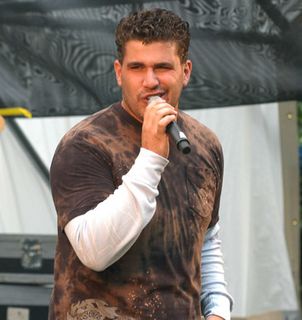A Quote by Terry Pratchett
Everyone knew there were wolves in the mountains, but they seldom came near the village-the modern wolves were the offspring of ancestors that had survived because they had learned that human meat had sharp edges.
Related Quotes
All stories are about wolves. All worth repeating, that is. Anything else is sentimental drivel. ...Think about it. There's escaping from the wolves, fighting the wolves, capturing the wolves, taming the wolves. Being thrown to the wolves, or throwing others to the wolves so the wolves will eat them instead of you. Running with the wolf pack. Turning into a wolf. Best of all, turning into the head wolf. No other decent stories exist.
Jack believed in something—he believed in white witches and sleighs pulled by wolves, and in the world the trees obscured. He believed that there were better things in the woods. He believed in palaces of ice and hearts to match. Hazel had, too. Hazel had believed in woodsmen and magic shoes and swanskins and the easy magic of a compass. She had believed that because someone needing saving they were savable. She had believed in these things, but not anymore. And this is why she had to rescue Jack, even though he might not hear what she had to tell him.
Wherever wolves run free, indigenous cultures have revered them as symbols of loyalty, free will, fearlessness and unity. But wolves haven't had it easy in North America, where negative myths prevail. Fear-based stereotypes and use of public lands for cattle ranching have resulted in Mother Nature's dogs being aggressively persecuted to the point of near extinction.
I was the fifth child in a family of six, five boys and one girl. Bless that poor girl. We were very poor; it was the 30s. We survived off of the food and the little work that my father could get working on the roads or whatever the WPA provided. We were always in line to get food. The survival of our family really depended on the survival of the other black families in that community. We had that village aspect about us, that African sense about us. We always shared what we had with each other. We were able to make it because there was really a total family, a village.
I was always embarresed by the words 'sacred,' 'glorious,' and 'sacrifice' and the expression 'in vain.' We had heard them, sometimes standing in the rain almost out of earshot, so that only the shouted words came through, and had read them on proclamations that were slapped up by billposters over other proclamations, now for a long time, and I had seen nothing sacred, and the things that were glorious had no glory and the sacrifices were like the stock yards at Chicago if nothing was done with the meat except to bury it.



































